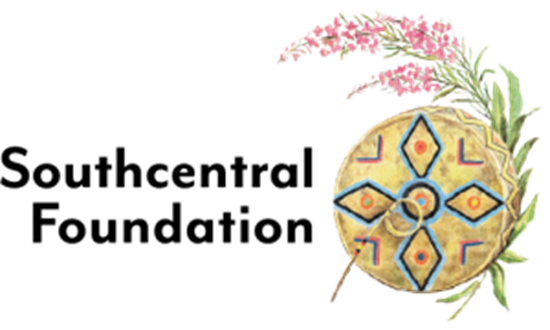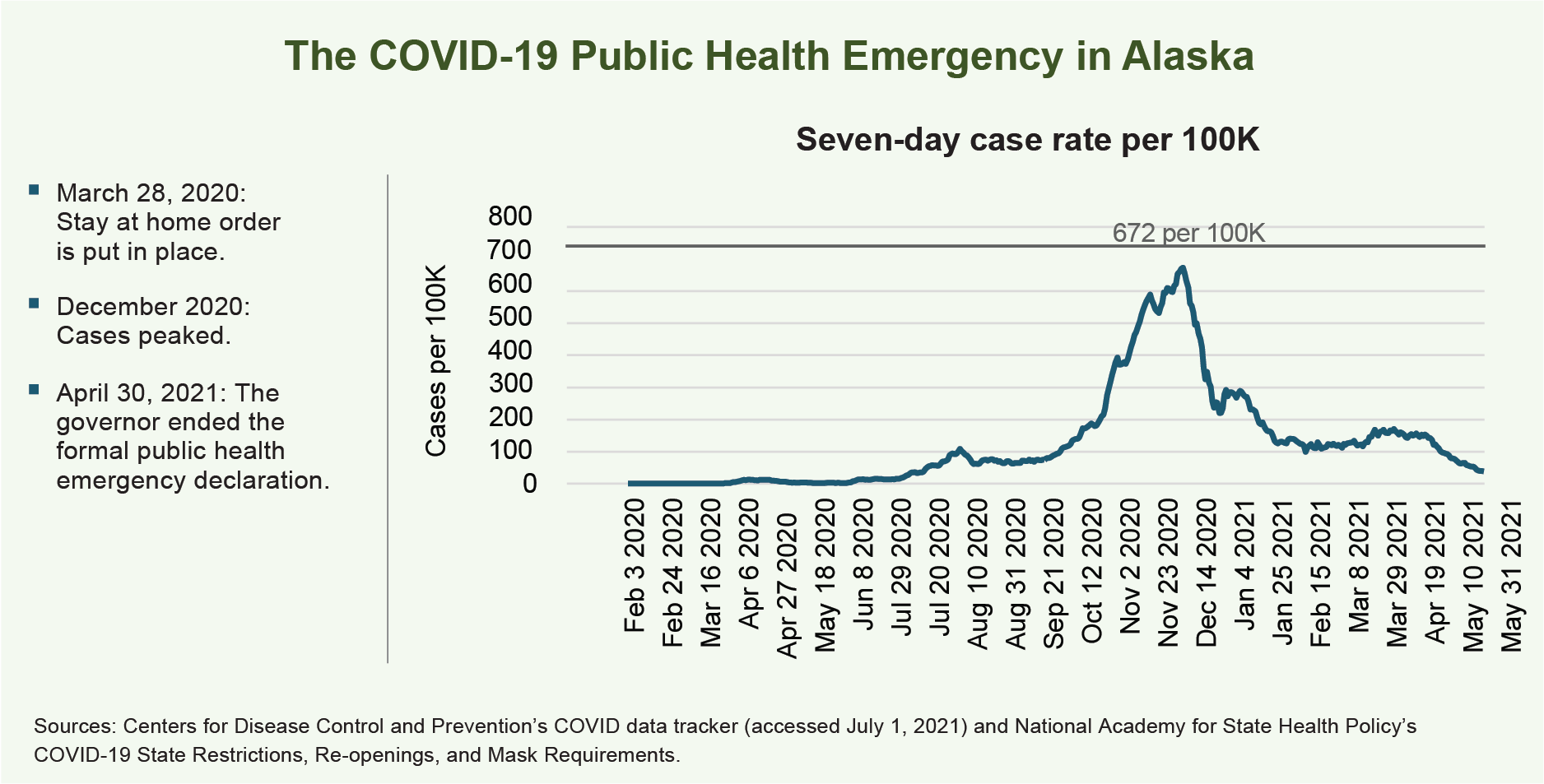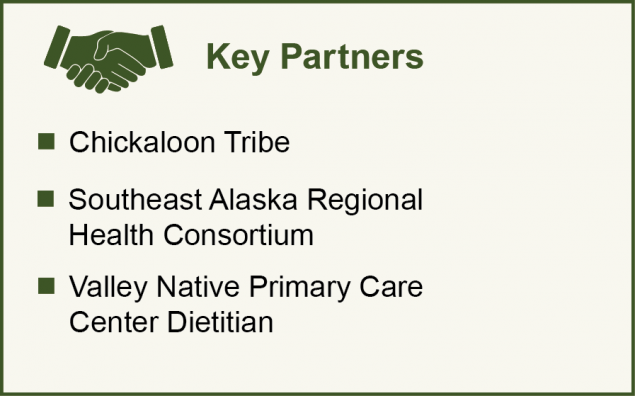Reaching Rural Populations Through the Life House Center at Southcentral Foundation (Alaska)
WISEWOMAN Innovation Spotlight

Southcentral Foundation’s WISEWOMAN program has an innovative approach that seeks to provide cardiovascular health education and support to women in rural Alaska, with a focus on Alaska Native women, by creating a rural WISEWOMAN program at the Life House Community Health Center in Sutton. Southcentral Foundation began implementation at the beginning of the COVID public health emergency in 2020. Figure 1 displays COVID case rates and timing of public health protective measures as important context that influenced the recipient’s program implementation progress.
- 1,514 women served, including 1,213 with a complete high blood pressure screening
- 94% of women identify as Hispanic, Black or African American, Asian or Pacific Islander, American Indian or Alaska Native, or multiracial
- 34% of women had hypertension at baseline screening
Source: Mathematica’s analysis of minimum data elements for women with a complete or high blood pressure screening in Years 1 and 2 (September 2018 to September 2020).
Notes: The national WISEWOMAN program defines hypertension as having an average systolic blood pressure of 140 mm Hg or higher, having an average diastolic blood pressure of 90 mm Hg or higher, or taking medication for high blood pressure.
How It Works
Southcentral Foundation initially planned to send a rural health educator to provide educational materials, tools, coaching, and referrals for women in rural and hard-to-reach areas. However, because of COVID-19–related travel restrictions that began in March 2020 (see Key Partners box), the recipient pivoted to providing WISEWOMAN services at the Life House Health Center.
This innovative strategy is led primarily by Southcentral Foundation program staff, dieticians, and other clinic staff at the Life House Community Health Center. The center’s clinic manager creates lists of eligible women from the center’s patient population, and the program coordinator uses these lists for outreach.
If a woman expresses interest in WISEWOMAN, the front desk staff sends her an enrollment packet and registration letter to complete and return. The participant is then scheduled for an initial visit, during which she receives screening and risk reduction counseling. Participants who express interest are then registered for four monthly virtual learning circles led by the dietician. Learning circles are based on the Med-South nutrition and exercise curriculum from the University of North Carolina, which was adapted by the dietician to reflect American Indian and Alaska Native cultures.
A lot of the feedback that we got [from participants] was that they would prefer to start these types of conversations and the screenings with a female provider.
Achievements to Date
Developed a protocol to reach women in an underserved rural community. After pivoting to the Life House outreach strategy because of COVID-19–related restrictions, Southcentral Foundation developed new workflows for identifying and enrolling Life House patients in the WISEWOMAN program. As of spring 2021, the recipient reported that program staff at Life House had identified about 80 eligible women with whom they could begin outreach once this effort officially launched, likely in early summer 2021.
Hired a full-time female provider at the Life House Center. Several program staff expect that participants’ engagement and women’s health screenings will increase, because women will be more comfortable with a female provider. One staff member suggested that a female provider can help build more trust in communities that have experienced trauma.
Navigated billing structures to enroll women who are not covered by the Indian Health Service (IHS). Program staff members noted that Southcentral Foundation has traditionally served only IHS beneficiaries, but many patients at Life House who are eligible for WISEWOMAN are not IHS beneficiaries. The Southeast Alaska Regional Health Consortium provided technical assistance to Life House on how to bill WISEWOMAN services for non-IHS beneficiaries.
Figure 1. The COVID-19 Public Health Emergency in Alaska, February 2020 to May 2021

This graph titled The COVID-19 Public Health Emergency in Alaska, charts the seven-day case rate per 100 thousand people, February 3, 2020, through May 31, 2021. The case rate remained close to zero from February 3 through June 29. Stay at home orders were put in place on March 28. Rates began to increase in July, peaking at 672 per 100 thousand in December. Case rates began to decline after that, reaching 300 in January 2021, 100 in February, and dropping below 50 by May. The governor ended the formal public health emergency declaration on April 30, 2021. Sources: Centers for Disease Control and Prevention’s COVID data tracker (accessed July 1, 2021) and National Academy for State Health Policy’s COVID-19 State Restrictions, Re-openings, and Mask Requirements.
Related Resources
References
- Centers for Disease Control and Prevention. COVID Data Tracker. Atlanta, GA: U.S. Department of Health and Human Services, CDC. Accessed July 1, 2021.
- National Academy for State Health Policy. 2020 COVID-19 State Restrictions, Re-openings, and Mask Requirements. Accessed July 1, 2021.

